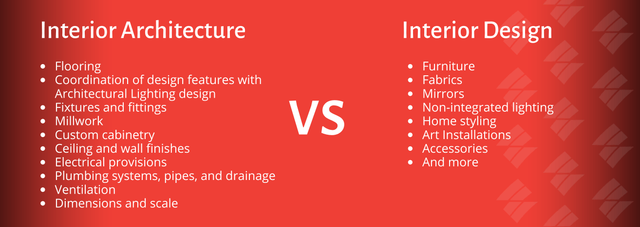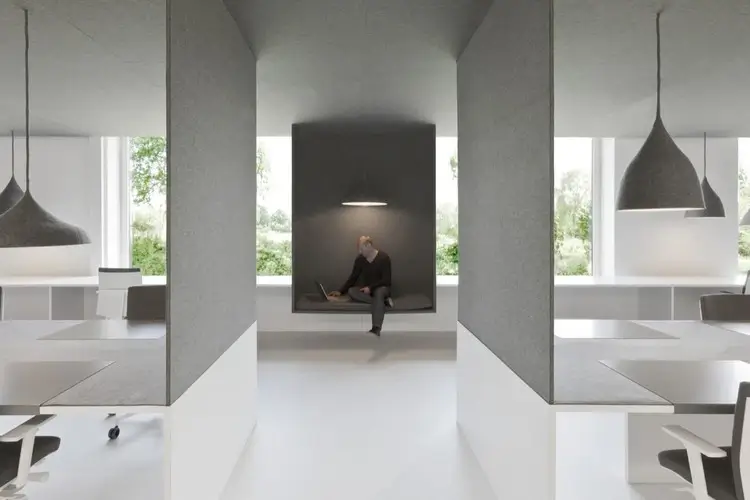Premier Winchester Design Expert for Unique Home Designs
Premier Winchester Design Expert for Unique Home Designs
Blog Article
The Art of Balance: Just How Interior Design and Home Engineer Collaborate for Stunning Results
In the realm of home style, striking an equilibrium in between aesthetic appeals and capability is no tiny task. This delicate equilibrium is achieved with the harmonious partnership in between indoor developers and engineers, each bringing their unique know-how to the table. The outcome? Rooms that are not just visually spectacular however likewise very habitable. This perfect blend is not always very easy to attain. Stick with us as we discover the details of this joint procedure and its transformative influence on home style.
Recognizing the Core Distinctions Between Inside Layout and Home Design
While both interior style and home style play important duties in developing aesthetically pleasing and practical rooms, they are inherently different self-controls. It deals with the 'bones' of the framework, working with spatial dimensions, load-bearing walls, and roof covering designs. On the other hand, indoor layout is more concerned with improving the aesthetic and sensory experience within that framework.
The Synergy Between Home Design and Interior Decoration
The harmony in between home architecture and Interior Design depends on a shared vision of style and the improvement of practical visual appeals. When these two fields line up sympathetically, they can change a living space from common to phenomenal. This cooperation requires a much deeper understanding of each discipline's concepts and the capability to create a cohesive, visually pleasing setting.
Unifying Design Vision
Unifying the vision for home style and interior layout can create an unified living space that is both useful and visually pleasing. It advertises a synergistic strategy where architectural components complement indoor design parts and vice versa. Therefore, unifying the layout vision is important in mixing design and indoor design for magnificent results.
Enhancing Practical Visual Appeals
Just how does the synergy between home design and Interior Design enhance practical aesthetics? This synergy makes it possible for the development of rooms that are not only aesthetically enticing however additionally comfortably functional. Engineers lay the groundwork with their structural layout, ensuring that the area is effective and functional. The indoor designer then matches this with very carefully picked elements that improve the looks without compromising the functionality. This harmonious partnership can lead to homes that are both attractive and liveable. An architect might design a house with high ceilings and big windows. The interior designer can then accentuate these features with large curtains and tall plants, respectively, thus enhancing the aesthetic appeal while maintaining the practical advantages of all-natural light and space.
Relevance of Partnership in Creating Balanced Spaces
The collaboration in between interior developers and architects is crucial in producing well balanced areas. It brings consistency between layout and design, giving birth to areas that are not only visually pleasing but additionally functional. Discovering successful joint approaches can give understandings into just how this harmony can be properly accomplished.
Harmonizing Layout and Architecture
Equilibrium, a necessary aspect of both Interior Design and style, can only genuinely be attained when these two fields operate in harmony. This harmony is not simply a visual consideration; it impacts the capability, sturdiness, and inevitably, the livability of a space. Interior designers and engineers must comprehend each various other's duties, respect their know-how, and connect efficiently. They need to take into consideration the interaction of architectural elements with design, the flow of areas, and the influence of light and shade. This joint procedure results in a cohesive, balanced design where every element adds and has a function to the total visual. Integrating layout and design is not just regarding producing gorgeous spaces, but about crafting rooms that function flawlessly for their citizens.
Effective Collaborative Approaches

Situation Studies: Effective Integration of Layout and Architecture
Examining a number of situation research studies, it comes to be apparent exactly how the effective integration of indoor design and style can change a room. Engineer Philip Johnson and indoor developer Mies van der Rohe worked together to produce a harmonious equilibrium in between the structure and the interior, resulting in a seamless circulation from the outside landscape to the inner living quarters. These case studies underscore the profound influence of an effective design and style cooperation.

Overcoming Challenges in Design and Design Collaboration
Regardless of the undeniable advantages of an effective collaboration between Interior Design and design, it is not without its difficulties. Interaction concerns can occur, as both events might utilize various terminologies, understandings, and techniques in their job. This can bring about misunderstandings and delays in job conclusion. Another major obstacle is the balancing act of looks and capability. Architects may prioritize architectural stability and security, while developers focus on comfort and design. The integration of these purposes can be intricate. Additionally, budget and timeline go constraints often include stress, potentially creating rifts in the partnership. As a result, reliable interaction, good understanding, and compromise are vital to get rid of these challenges and accomplish a unified and successful cooperation.

Future Fads: The Progressing Partnership Between Home Architects and Inside Designers
As the world of home style proceeds to develop, so does the partnership between designers and interior designers. The pattern leans in the direction of a more incorporated and joint strategy, breaking without typical roles. Architects are no more only focused on structural stability, yet additionally engage in improving visual charm - Winchester architect. Alternatively, interior designers are accepting technical elements, affecting total format and functionality. This developing symbiosis is driven by improvements in modern technology and the expanding need for rooms that are not only visually pleasing but sustainable and likewise functional. The future guarantees a much more natural, ingenious, and flexible technique to home style, as developers and designers proceed to obscure the lines, promoting a connection that genuinely personifies the art of equilibrium.
Verdict
The art of balance in home layout is accomplished via the harmonious cooperation between indoor designers and designers. Despite obstacles, this partnership cultivates growth and other advancement in layout.
While both interior layout and home architecture play necessary roles in producing aesthetically pleasing and practical spaces, they are inherently various self-controls.The harmony between home design and indoor design lies in a common vision of design and the enhancement of practical aesthetics.Unifying the vision for home architecture and indoor design can produce a harmonious living space that is both useful and aesthetically pleasing. Thus, unifying the style vision is crucial in blending style and interior style for stunning results.
Exactly how does the harmony in between home style and indoor layout enhance functional looks? (Winchester architect)
Report this page